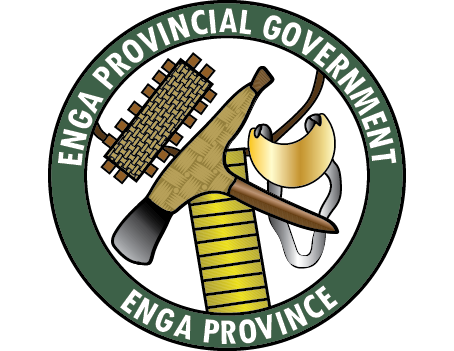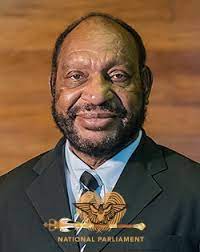Education
The Enga Division of Education is the biggest division within the Enga Provincial Administration, and it serves the educational needs of about 295,000 people in the province. There are three main agencies participating in the delivery of Education services in Enga Province and they are; National Government, the Provincial Government and the Missions.
There are about 1800 teachers teaching 49,000 students in well over 370 educational institutions in the province. These institutions consist of 217 elementary, 88 top-up primary, 45 community schools, two upper secondary, ten lower secondary, seven technical/vocational, and three permitted schools. Some of these institutions are accessible by roads while others are accessible by air (example, Maramuni ) and even few schools are accessible on foot only.Expansion of the education system in the province has been made possible by the EPG’s priority policy on education.
Today there are five prominent church agencies (Catholic, Lutheran, Seventh-day Adventist, Four Square, Baptist,) who are partners with the Enga Provincial Government (EPG) in delivering educational services. These schools are governed by the Enga Provincial Education Board under the Education Act of 1990 and managed by the Division of Education. There are also a small number of permitted schools administered by private and individual groups in the province. Papua New Guinea has a highly decentralized education system following the establishment of the provincial government system in 1978. The decentralization laws have given Enga Province the responsibilities including planning, financing, staffing and maintaining general education institutions up to Grade 12. This includes pre-school, elementary, primary, secondary and vocational schools.
Quality Education System
The government wants to transform the province into an education hub in Papua New Guinea. The provincial government has set a strategy for its vision and establishing major institution in the province.
The Provincial Government’s latest quest for quality education as a subsidiary policy shift from education subsidy is welcomed by the majority of educated citizens amidst the nationwide reform focusing on system expansion and structural changes which inevitably compromise on quality. More improvement is required not only in terms of accessibility, but also in terms of quality, efficiency and equity. There are number determinants of quality education in the likes of curriculum material, specialist learning facilities, library, teaching aids, teacher qualification and inspection system as the overall custodian of quality sustenance within the system.
Education has been and will continue to be a major focus of the EPG and the major initiatives in this regard, Priority Development Policy Programs and Projects – Enga Government
Overall EPG Education Sector
The Provincial Education Division manages the Provincial education Act and uses it to manage the Education System in the Province.
Goal | Achieve a better future for Enga by promoting and enhancing integral human development
The Education Sector Program of the Province emphasis mainly in the following areas to achieve goals set by the Vision 2050 and the MTDS:
In order for these goals and targets in education to be achieved, the institutional and education administration capacity improved through identification of logistics, incentives and resource allocations to teachers and education administrators at all levels; and
HIV/AIDS education in schools is given a priority project for all children, especially those from Year three and upward.
Providing and improving basic and universal education to all school aged children in the Province through development of the formal education system, post secondary TVET and specialized education to the physically handicapped children
Multi-sectoral approach to addressing the law and order and other social issues such as drug abuse which are contributing to the downturn of performance in the education sector:
Re-establishing of schools closed and construction of new schools in order to meet targets as set by the Performances Indicators
spender equality is also promoted when girls schools are given priority by setting concessions and maintaining its retention rate
Providing and improving basic and universal education to all school aged children in the Province through development of the formal education system, post secondary TVET and specialized education to the physically handicapped children;
1) Enga Primary Teachers College to meet demand for both elementary and primary teachers and to ensure sustenance of the policy on quality education and training.
2) All primary teachers to be upgraded to Diploma level
3) A Day High School to be built to cater for the Wabag District as the district has no high school.
4) Build one high school in the Maramuni sub-district
5) Continue to pay subsidy consistently and not seasonally in years to come
6) Equip schools with curriculum materials and relevant teaching aids
7) Establish a LAMP (Learning Aid Material Production) center
8) Renovate and maintain all School facilities
9) 10 community Schools to be upgraded to Primary Schools
10) One double classroom for each School in all districts
11) Further training for PHQ staff
12) Funds for in-service programmes and Continuous in-service training for teachers
13) Awareness on community/parents ownership of schools
14) Decentralize Enga teachers salary payment system to the province Provincial Curriculum committee to develop a HIV/Aids curriculum to be taught in schools
15) Consistent logistical and financial support to school inspection and standards related activities
16) Ensure that land on which each school sits on is secured by the agency concerned.
17) One more Secondary School Inspector and make school visits 4 times per year
18) Equip and supply all libraries with books for learning and reading
19) One Technical High School to cater for the provinces need for technical manpower above TVET
20) One Community College to compliment holistic technical education.
21) New Water Reservoirs for all High Schools and Secondary Schools
22) Extend CODE to districts, example Kandep, Kompiam and Porgera
23) Continue to support Enga University Centre and extend its services to all districts
24) Increase Elementary School Inspectors.
25) Promote more women to senior and management positions
26) Establish effective District Education Boards
27) Institutionalize Special Education for disabled children
28) Establish Adult Literacy Programmes in all districts
29) One Education Resource Centre for each District
30) Train one teacher from each primary school to be a specialist full time librarian teacher
31) Testing of elementary teacher trainees


